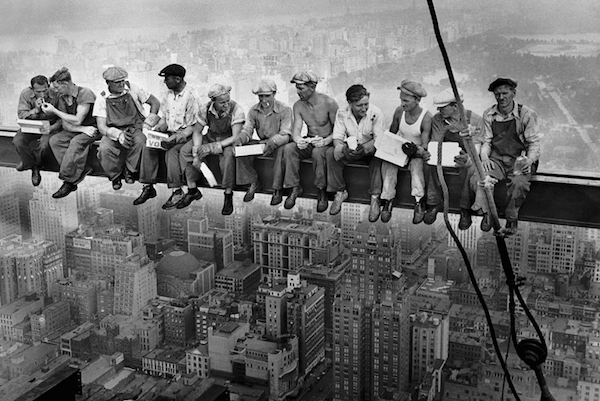At the Conservative Home Victory 2015 conference today, a panel was asked: how can the Tories avoid being seen as a party of the posh? ‘Well, a lot of you are pretty posh,’ replied the journalist Anne McElvoy. ‘Open a cupboard in No10 and an Old Etonian falls out.’ The success of Boris, of course, shows that class isn’t necessarily a handicap. The issue is whether voters believe that a party, or its leadership, shares their values. So what to do? The conference held a session on this theme later chaired by Peter Hoskin, late of this parish. Here’s a summary.
Philip Davies, MP for Shipley and a former Spectator backbencher of the year, read a quote from Lord Ashcroft’s research. It was from a woman whose 16-year-old daughter had come home from school asking why she hadn’t been given a free computer, as her classmates had.
‘I told her it was because we work hard and pay our bills…We would not have qualified for EMA but I could not afford to give my kids £40 a week, it would have been a real strain on our finances.’
This woman was nonetheless dismayed by the withdrawal of child benefit from the richest 10pc. ‘If people have worked hard to buy a nice house or a nice car or whatever, why should they be penalised by having their child benefit taken away?’ Tories, Davies said,
‘Should also be for people just above that bottom rung. If the Conservative Party is not for those aspirational people, I really don’t know what the party is for.’
Tories should be offering the cheapest energy, not the greenest energy. ‘And we have a ridiculous policy on minimum pricing for alcohol – what does that tell working class people? Not only do we not understand them, we’re not even interested in them.’
Nadine Dorries was next up. When she was growing up in Liverpool, she said, the city had eight Tory MPs and an all-Tory council. She remembers her neighbour on her council estate explaining why she was voting Conservative. ‘They are the party of the family. Labour are the party of the workers.’ It was clear, then, what the Tories stood for and it held a strong working class appeal. No longer.
Nor are today’s Tories particularly useful to the working class. ‘If you talk to a C2 blue-collar worker, it won’t be long before they start talking about money,’ she said. They shop around: Aldi, Tesco, street markets.
‘They know precisely how much they paid for their last electricity bill, how much they pay for fish & chips on a Friday, they meticulously manage their money. Because they have to. Knock on a door of a C2 voter and they soon ask: what’s your party going to do for me?’
Dorries also mentioned Eastleigh.
‘Thatcher did for my family what I’d like [a Tory government] to do for everyone: she reached out and gave us a hand up. My mother bought her council house. In Eastleigh, UKIP said: we want immigration, but on an Australian-style system where we only take people who have skills we need. The C2 voter likes to hear that, it means his job is protected. UKIP spoke about values in Eastleigh, and voters thought: there’s a new kid on the block. That kid is talking their language and the other three parties are not.’
She also said how she is annoyed by Tories who think it’s déclassé to wear ties. Lots of C2 voters don’t have the option of an open neck, she said. Turn up without a tie and they’d be sacked.
Robert Halfon, fuel tax campaigner, spoke last. Earlier today, Nick Clegg accidentally spoke of the ‘good work Ed Balls is doing’ (he meant to say Ed Davey) but Halfon praised Balls deliberately:-
‘We need someone like Ed Balls. One of the things I admire about Balls is that he wakes up and asks: how many Tory throats can I slit today? Our gentlemanly politics is not going to win us the election. I sit in the Commons and watch Labour every day, and you can’t help but admire the way they oppose us in everything that we do.’
Here’s Halfon in action – a fuzzy picture, but note the slogans and images of flag-bearing Tory activists. All of which I quite liked.








Comments